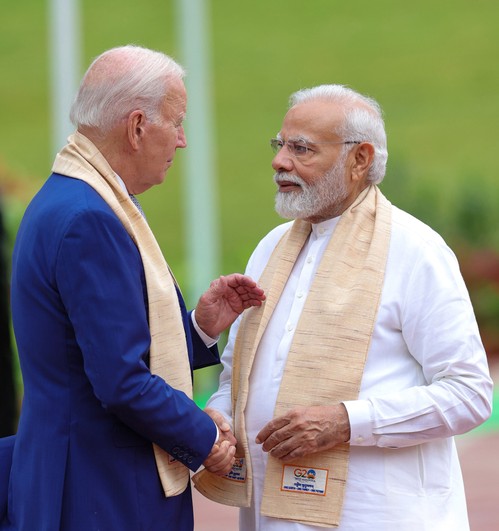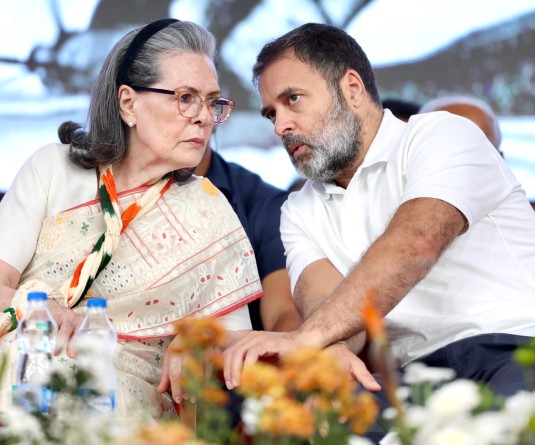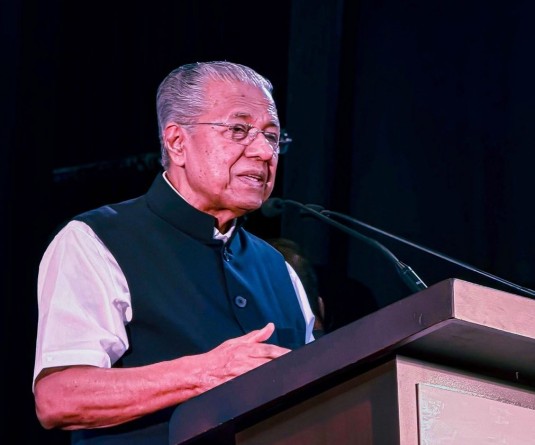IANS Photo

Washington, April 10 (IANS) The United States is putting behind recent irritants and acrimony in ties with India with a high-level visit by a top official to Delhi next week and glowing reviews of the bilateral relationship with one official who says it has scaled to "new heights".
Deputy Secretary of State Kurt Campbell is visiting India next week, according to a senior Biden administration official, to "celebrate elements of our bilateral relationship, compare notes on the Indo-Pacific, and also talk about next steps in technology cooperation".
The official, who spoke to reporters in the background about the ongoing state visit of Japanese Prime Minister Fumio Kishida, added: "We think these are all effective, prudent elements of taking the US-India relationship to the next level."
The official also said that for President Joe Biden, efforts to develop a stronger relationship with India were among his "proudest" achievements.
National Security Adviser Jake Sullivan gave an equally glowing account of the relationship with India while addressing reporters separately.
"The partnership between the US and India, a country in BRICS, has gone to new heights with an engagement across technology and security and so many other dimensions," he said, in response to a question if the US is worried by the growing clout and membership of BRICS, a group that draws its name from the first letters of its original members Brazil, Russia, India, China, and South Africa. It was recently joined by Egypt, Ethiopia, Iran, and the United Arab Emirates; and Saudi Arabia is contemplating joining as well.
The senior administration official used the word “excelled” to describe the level of engagement between the two countries.
Campbell’s visit to India will be his first in his new role as Deputy Secretary of State, which is roughly the rank of a minister of state in India. He has been the Biden administration’s czar on the Indo-Pacific bilaterally with rim countries and for the Quad, a multilateral group comprising India, the US, Japan and Australia, which has seen robust growth after Biden came to office.
There was not a hint in these remarks of recent irritants in the relationship caused by remarks by US diplomats in New Delhi and Washington DC. These elicited strong responses.
The Ministry of External Affairs (MEA) summoned acting Deputy Chief of Mission Gloria Berbena for her remarks on the case against Delhi Chief Minister Arvind Kejriwal. The State Department followed this with a call for "a fair, transparent and timely legal process for Chief Minister Kejriwal". It had elicited a statement from the MEA saying it took "strong objection".
The US also expressed concern over the implementation of the Citizenship Amendment Act and said it was monitoring it closely. The bilateral relationship faced its biggest challenge in recent months with the US Justice Department accusing an Indian citizen of trying to organize the killing of a Khalistani activist in the US, at the behest of a serving official who was identified in court filings as CC1.
The Biden administration went on to call for India to conduct its own investigations to ascertain the facts. New Delhi agreed and set up an inquiry, which, according to recent reports, has found that it was a rogue operation ordered by an official of the Research and Analysis (RAW), who has since been removed from the organisation.
These news reports also indicated that the US has been informed of the findings. But the State Department recently said it is still waiting for a report. These exchanges of words and acrimony put a cloud over the relationship. But it’s clear from these remarks by top American officials that the damage, if any, was peripheral and ephemeral leaving the core in good health, and as NSA Sullivan put it, scaling "new heights".






